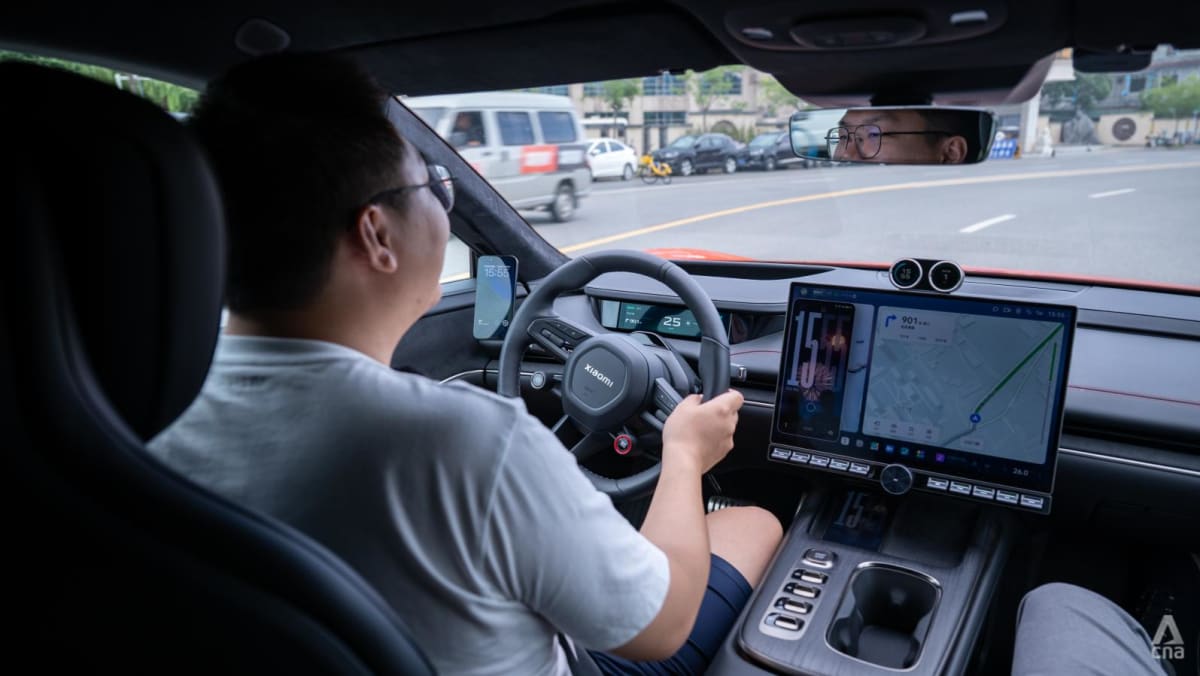China Tightens Smart Driving Regulations Amid Safety Concerns, But Ambition Remains
2025-07-22

CNA
China is navigating a crucial juncture in its pursuit of autonomous driving leadership. Recent incidents have prompted discussions around stricter regulations for smart driving technology, sparking debate about the balance between safety and innovation. While Beijing acknowledges the need for enhanced oversight, experts assure that the nation remains firmly committed to its long-term goal of becoming a global leader in this transformative field. This article explores the evolving regulatory landscape, the underlying safety concerns, and China's unwavering ambition in the smart driving sector.
The Push for Regulation: A Response to Recent Setbacks
The rapid development of smart driving technology in China has been remarkable. However, a series of high-profile incidents involving autonomous vehicles have raised serious safety concerns among the public and regulators. These incidents, ranging from minor collisions to more severe accidents, have highlighted the potential risks associated with relying on advanced driver-assistance systems (ADAS) and fully autonomous vehicles. In response, the Chinese government is actively considering and implementing stricter rules to ensure public safety and maintain confidence in the technology. This includes potential limitations on testing locations, more rigorous safety assessments for autonomous systems, and clearer guidelines regarding liability in the event of accidents.
Balancing Innovation and Safety: A Delicate Act
The challenge for China lies in striking a delicate balance between fostering innovation and ensuring safety. Overly restrictive regulations could stifle the growth of a burgeoning industry and hinder China's ability to compete on the global stage. Conversely, lax regulations could lead to preventable accidents and erode public trust, ultimately derailing the entire autonomous driving ecosystem. Experts emphasize the importance of a flexible and adaptive regulatory framework that can evolve alongside the technology. This means creating rules that are stringent enough to address immediate safety concerns but also allow for experimentation and iterative improvement.
Beijing's Unwavering Ambition: A Leader in Smart Driving
Despite the recent challenges and the prospect of stricter regulations, Beijing remains resolute in its ambition to become a global leader in smart driving technology. The Chinese government views autonomous driving as a strategic priority, recognizing its potential to revolutionize transportation, enhance efficiency, and create new economic opportunities. Significant investments are being made in research and development, infrastructure upgrades, and talent acquisition to support the growth of the industry. Furthermore, China's vast market and unique urban environments provide valuable opportunities for testing and refining autonomous driving systems.
The Road Ahead: Collaboration and Continuous Improvement
The future of smart driving in China hinges on collaboration between government, industry, and research institutions. Open dialogue and knowledge sharing are essential for developing effective regulations and addressing emerging safety challenges. Continuous improvement of autonomous systems, through rigorous testing and data analysis, is also crucial. As the technology matures and becomes more widely adopted, public education and awareness campaigns will play a vital role in building trust and ensuring responsible use. China's journey towards autonomous driving leadership is a complex and ongoing process, but with a commitment to safety and innovation, the nation is well-positioned to shape the future of transportation.
Key Considerations:
- Data Security: Regulations will likely focus on data security and privacy, given the vast amounts of data collected by autonomous vehicles.
- Cybersecurity: Protecting autonomous systems from cyberattacks will be paramount.
- Ethical Considerations: Addressing ethical dilemmas, such as how autonomous vehicles should prioritize safety in unavoidable accident scenarios, will be essential.






